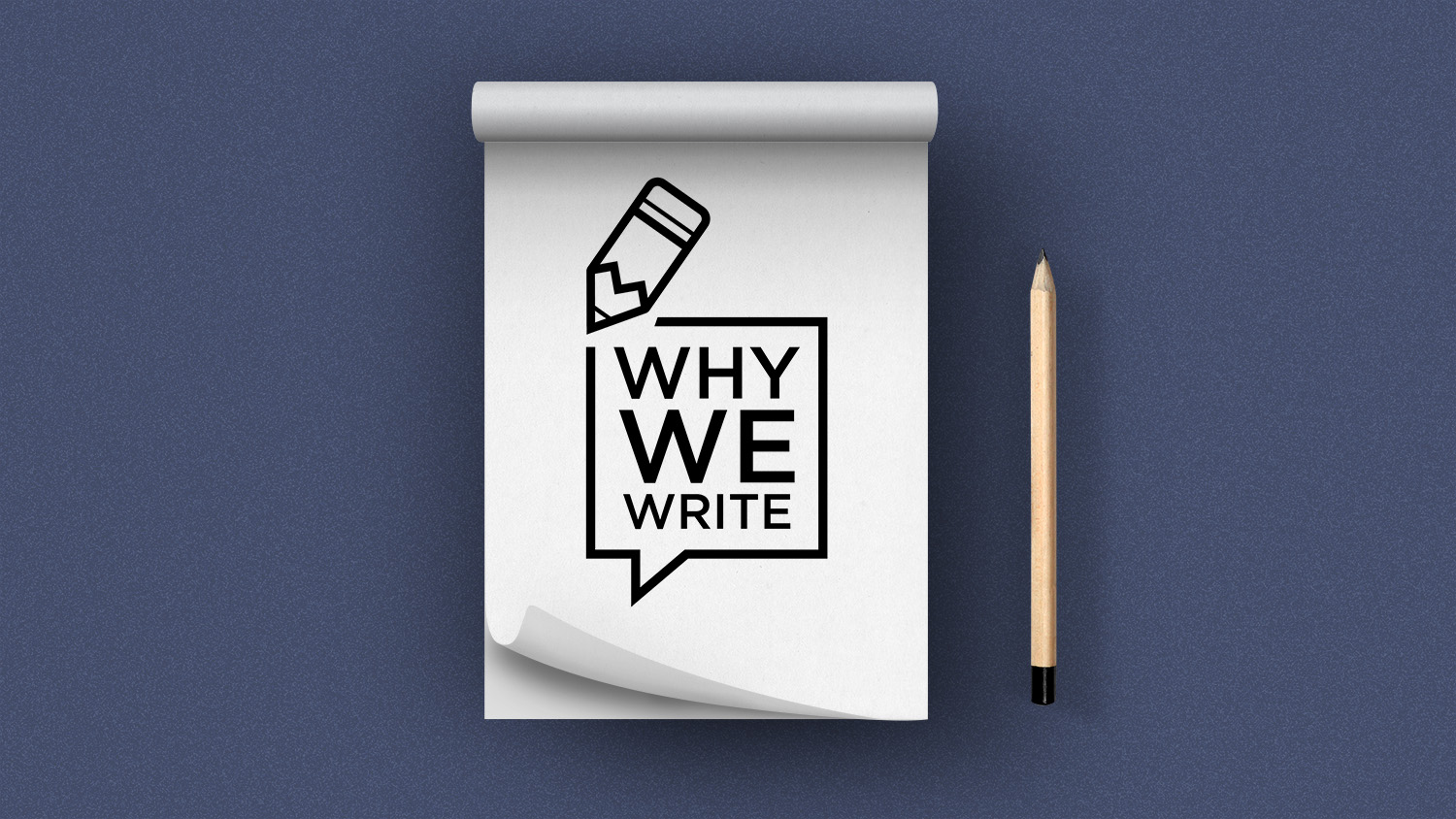Why I write is a good question. There are many reasons, but the main one is something that took me far too long to appreciate. I write because it helps my thinking. Sounds simple and obvious, but it took me quite a while to consciously realise that writing ideas and thoughts down forced me to engage my brain first. Writing lines of argument or facts and figures gives me much greater focus on the intellectual underpinning of whatever I am trying to say and on the accuracy of those facts and figures. I find writing acts as a form of self validation – not that my ideas are right, but that I have thought them through to the best of my ability at that point in time. I suspect the reason for this is partly that the written word is permanent so there is an unconscious desire to make sure it is correct. You never know who, over time, will read what you write, whereas when speaking the words are gone and only those in earshot directly absorb them. Whatever the reason, writing gives me much greater clarity and focus in my thinking. From this perspective, writing is a process rather than the product and I’ll come back to this point shortly. But first to look at writing as a product….
There are many reasons for writing but they are all based on the passing of information. Forums such as The Forge are designed to inform, debate, educate and refine our thinking through the sharing of ideas. This concept is already well covered so I won’t belabour it, other than to say that the sharing of ideas is more important today than ever before. The current rate of change in all aspects of our lives is greater than at any time in history, which opens up an increasingly wide array of threats and opportunities. To minimise the threats and capitalise on the opportunities we need the intellectual horsepower of as many as possible, and nobody ever had the perfect idea by themselves. It is only by airing an idea and having it critiqued that it improves. It takes courage to open yourself up to such a critique, but once you realise that others inputting into your idea strengthens it – and shows that they took the time to absorb and think about it – then the reward is there. You have had an impact. And even if a criticism you hadn’t thought of renders your idea unworkable, it was not wasted effort. You have learnt something. In many ways this is the same as the current fixation on “innovation” across our society. We need to look on “innovative” ideas as learning opportunities and not view them through a “success” or “failure” lens. If something doesn’t work you have learnt something, not failed at something. This is as true with a written idea as it is with a piece of new research or technology.
Sometime writing is to entertain. Other times it is to record key information to help people learn from the experience of others. This last point is particularly important for Defence where posting cycles mean we have challenges in retaining corporate knowledge. In an earlier life I penned my thoughts on ship handling for our FFGs [1] which was subsequently shared by other people. I wasn’t necessarily better at ship handling that than anyone else, but felt that the experience that I had gained could be shared with others and then amalgamated with the benefit of their own experience to make them better. The Navy owned my skills (they had given them to me) so I felt a responsibility to pass on the benefit of my experience back to the Navy. Doing so helps the next person start one rung further up the learning ladder than I had, and the Navy is better as a result. By committing my ideas to paper, the knowledge was spread without my ongoing involvement and hit a far wider audience, over a much longer period of time, than any verbal presentation could.
In line with an earlier contribution to this series, there are also plenty of reasons not to write. The one most often given is time. But like anything, if you value something you can always make time - you simply stop doing something else. I challenge anyone to honestly say that they aren’t spending enough time in front of the TV or on Facebook or surfing the internet on useless tasks. The other common reason – one I suffer from – is wanting to get very clear in my mind what I want to write before even starting. That is my natural bent – it needs to be perfect before I start. But it is important to appreciate that writing is not just the end point in getting an idea across, it is a vital part of developing that idea in the first place (my earlier point). Sure, the final piece of writing does need to effectively communicate, but you can’t wait until you have the perfect idea in your head and then somehow expect to write it all down simply as a mechanical information transfer process. No, the writing process is key to the thinking process. The consequence of this, of course, is that most of the words I write are never seen by anyone else. There may have been 5000 words used to generate a 2000 word article. 3000 of those words were not wasted but were a key part of the thinking process. Without them, the 2000 words that constitute the final article wouldn’t have eventuated.
If you have the ‘must be perfect’ syndrome, remember that it doesn’t matter that those 3000 words weren’t perfect because nobody will see them. They were simply tools to get the other 2000 words right. No need to feel embarrassed as the sentences waffled on or ended up going nowhere (something I’m pretty good at). The thought process that went into those meandering words, or dead-end sentences have all refined your thinking - which is exactly what they were meant to do. Not all the words you write are meant for public consumption; in fact, very few are.
My final point is the mechanics of writing. Most of us write on a computer these days, but I still find value in writing with a pen at times. There is a lot of research on the pros and cons of handwriting versus typing on a computer but I suspect it is an individual thing, largely driven by our own backgrounds. I find it quicker to write via keyboard, and that is how I do most of my writing, but when I am taking notes from books, articles, or from a presentation – any time I need to think more deeply about what I am being presented - I prefer to hand write notes as I go. It may be that handwriting is slower than typing, so one’s brain is more engaged in formulating the words. It may be that there is no ‘delete’ button on a pen, so you are unconsciously more careful in thinking of the words before writing them. Or – and this is probably the most likely – it’s that when I went through school and university we had no option but to use a pen and paper, so it is familiar. Whatever the reason I still find handwriting very useful.
Sometimes I use a pen and paper, but I also have an Apple pen and hand write notes into my IPad which I then convert to text using Notes Plus. I then draw key ideas from those notes to amalgamate with other input to write up my first draft on my laptop. That’s just me - whatever works for you is fine. The important thing is to actually read and write (different sides of the same coin), especially now that our advantage is increasingly our intellectual edge and not just our technology. People of my vintage are unlikely to identify the best ways to use new technologies – we will tend to use new technology to do the old (ie familiar) things better but may miss the full potential new technology offers. That’s a generalisation of course, but I think the broad thrust of that statement is correct as we are all a product of our past. We are less likely to think of the new ways of doing business than younger generations who have a much different, and fresher view of the world. For the ADF to collectively build our intellectual edge requires the experienced amongst us to pass on the benefit of that experience and for the younger members of our profession to be informed by, but not bound to, that experience. And writing our ideas is key to this process, both for clarifying thinking and passing on information.
And my final point is you are never too junior enough to have something valid to say. Indeed, your input is critical for our profession, so go for it!
[1] Editor’s Note: Frigate, Guided Missile. Further Information.
Technical Mastery
Social Mastery
Please let us know if you have discovered an issue with the content on this page.
Comments
Start the conversation by sharing your thoughts! Please login to comment. If you don't yet have an account registration is quick and easy.




